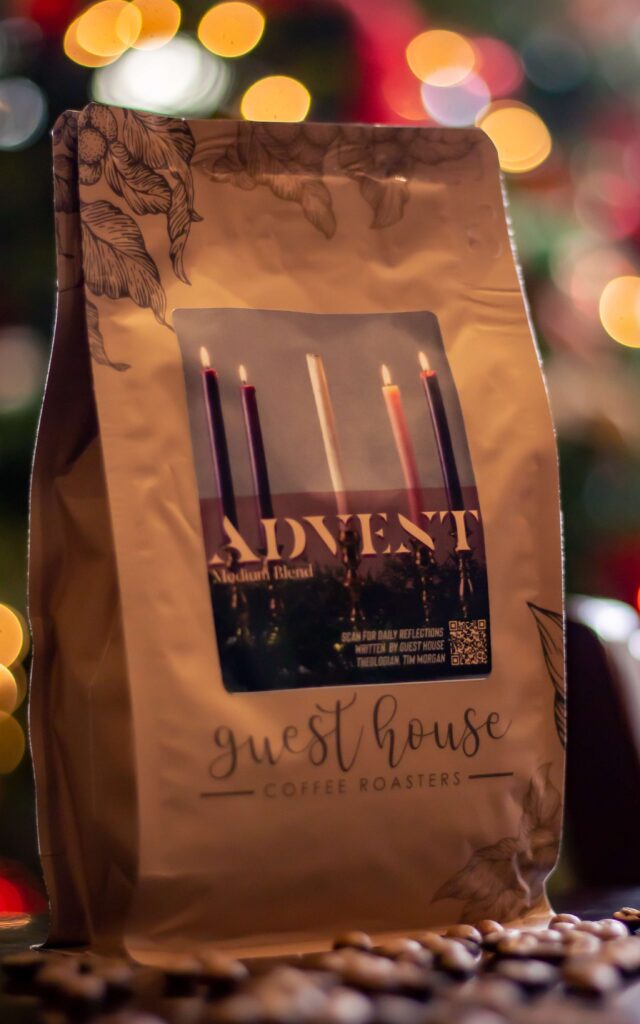
Image of the “Crucifixion” panel in the hospital chapel of St. Anthony’s monastery painted by Matthias Grünewald taken from https://www.christiancentury.org/article/crucifixion-matthias-grünewald.
“And blessed is the one who is not offended by me” (Matthew 11:6).
Our world is a powerful delusion. Its stories, interests, dynamics, arrangements, aspirations, its whole way of doing things presents itself to us as brute fact, as the unalterable limits of life. Its props can be rearranged, different people can play different roles, but the play is the same. The king of Assyria, used by God to chastise his people, very much saw his role in terms of his world, rather than God’s: “Are not my commanders all kings? Is not Calno like Carchemish? Is not Hamath like Arpad? Is not Samaria like Damascus? As my hand has reached to the kingdoms of the idols, whose carved images were greater than those of Jerusalem and Samaria, shall I not do to Jerusalem and her idols as I have done to Samaria and her images” (Isaiah 10:8-11)? All of the accomplishments of his reign, all of the possibilities to expand his kingdom, all of the arrangements of the civilized world, for the king, boiled down to what he had made happen. By all appearances, his defenses were impenetrable; his assaults couldn’t be withstood; his throne was invulnerable. What more could be attained? He had achieved victory. The king’s perspective, however, stood under the judgment of God’s perspective. Isaiah writes, “When the Lord has finished up all his work on Mount Zion and on Jerusalem, he will punish the speech of the arrogant heart of the king of Assyria and the boastful look in his eyes” (Isaiah 10:12). The power of our world’s delusion is that, when an axe is swung, it’s not liable to realize someone’s swinging it—all the axe knows is its swinging (Isaiah 10:15).
I suspect we aren’t immune to this delusion, in some form or another. We see the axe. We see its power and destruction. Its shadow wraps around us, binding us upon its path. Our world’s projects appear to repel the advance of Christ’s reign. And we ask, “Are you the one who is to come, or shall we look for another” (Matthew 11:2)? Here, in our situation, under the shadow of the axe, surrounded by evils and blinded by iniquities (Psalm 40:12), the psalmist declares, “You have multiplied, O Lord my God, your wondrous deeds and your thoughts toward us; none can compare with you” (Psalm 40:5). Jesus has a similar word: “the blind receive their sight and the lame walk, lepers are cleansed and the deaf hear, and the dead are raised up, and the poor have the good news preached to them” (Matthew 11:5; see Isaiah 35:5-6). In the current state of affairs, when it looks like we’ve hitched our wagon to the wrong Messiah, the kingdom, Jesus declares, is coming. What God’s doing is happening. As licentiousness and promiscuity lord our generations’ hearts, as greed and pride determine the course of our generations’ lives, as faithlessness and foolishness become our generations’ wisdom, as God is mocked and Christ is trampled underfoot, God’s purposes are being accomplished. The Lord says, “By the strength of my hand I have done it, and by my wisdom, for I have understanding; I remove the boundaries of peoples, and plunder their treasures; like a bull I bring down those who sit on thrones” (Isaiah 10:13). Indeed, “we preach Christ crucified, a stumbling block to Jews and folly to Gentiles” (1 Corinthians 1:23). Truly, “this Jesus delivered up according to the definite plan and foreknowledge of God, you crucified and killed by the hands of lawless men” (Acts 2:23). In Christ’s death, the prospect of failure looms over us. We are tested, tempted by “the gloom of utter darkness” (2 Peter 2:17). Like dogs, we’re drawn back to our own vomit (2 Peter 2:22). Our eyes are fixed on the axe. This is the situation we’re in before the coming Christ, where he delivers to us a beatitude: “And blessed is the one who is not offended by me” (Matthew 11:6).
Today, I’d like you to imprint upon your mind and heart the belief that God is victorious in our apparent defeat, because he “chose what is weak in the world to shame the strong” (1 Corinthians 2:23). Let the scroll of that truth unroll before your eyes. Be possessed by it. God’s purposes are not frustrated by our delusions. He is the Lord of our times. In the gloom before daybreak, fix your eyes upon what God has done, so that you can see what God is doing.
Further Reading: Psalm 40; Isaiah 10:5-19; 2 Peter 2:17-22; Matthew 11:2-15
Written by Guest House Theologian, Tim Morgan. These reflections are a complimentary addition to our Advent Blend Coffee Bags. Scan the QR code each day to read the most recent reflection.

More Advent reflections can be found here.